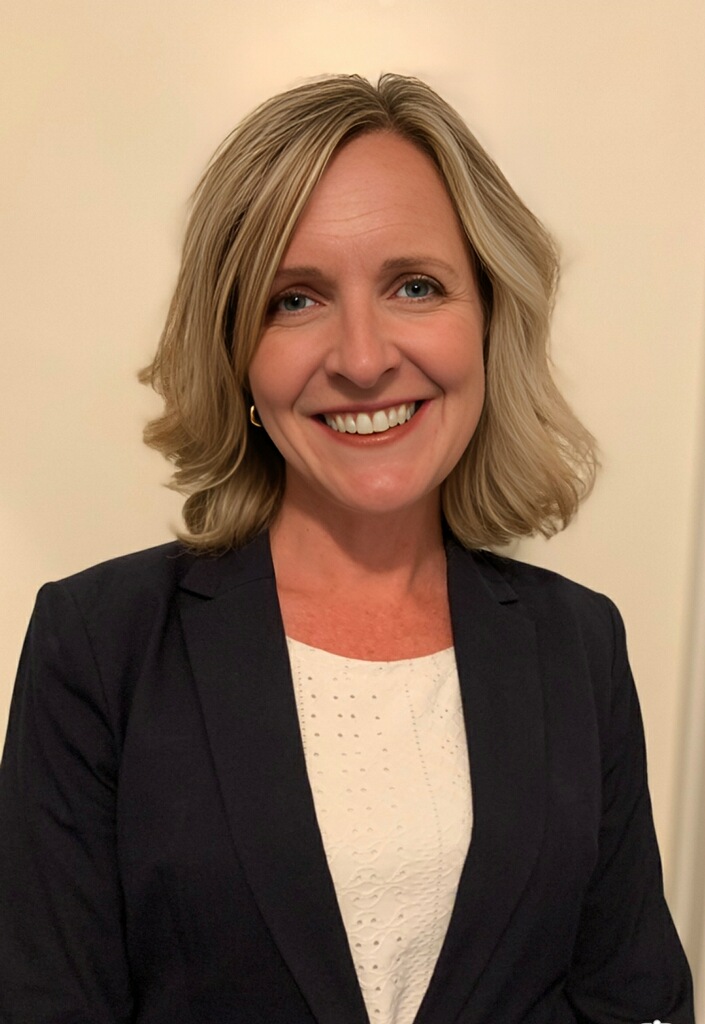Join the Maryland-National Capital Homecare Association for a half day Fall Symposium on September 14, 2023.
Agenda
9:00-9:45 a.m. - Networking / Breakfast
9:45-9:50 a.m. - Welcome and Opening Remarks- Caitlin Houck
9:50-10:30 a.m - Leave No One Behind in an Aging Maryland: Creating a Multisector Plan- Jenna Crawley
10:30-11:45 a.m. - Keynote: What Providers Need to Know About Caregiving- Dr. Aaron Blight
11:45-12:00 p.m. - Break
12:00-1:00 p.m. - Maryland's Direct Care and Services Workforce: Understanding and Addressing Staffing Challenges- Meg LaPorte and Amy York
About the Speakers

Aaron Blight, EdD
Dr. Aaron Blight formerly owned a large home care company and holds a doctoral degree in human and organizational learning. As the Founder of Caregiving Kinetics, Aaron taps into the minds and hearts of caregivers in support of organizations and families.
Dr. Blight has been recognized as a “Top 100 Healthcare Leader” by the International Forum on Advancements in Healthcare. His distinguished career includes leadership positions in consulting, healthcare administration and policy, and caregiving research. He is the author of When Caregiving Calls: Guidance as You Care for a Parent, Spouse, or Aging Relative, which received a 2020 Best Indie Book Award, a 2021 IPPY Award, and a 2022 Mom’s Choice Award.
Keynote Session- What Providers Need to Know About Caregiving
Caregiving is at the heart of everything you do. In fact, it's easy to be so consumed by the urgent tasks of caregiving that you don't recognize the deeper dimensions of care - including how care itself changes us as human beings.
This presentations will expand your paradigm view of caregiving - beyond the physical tasks of care - so that you can better support your frontline workers.
Drawing upon research from organizational psychology, applied gerontology, and adult learning, will learn about the social dimensions of care, which will help you align your organization's recruitment/retention efforts in the most commensurate way.
Learning Objectives:
- Acquire a framework for viewing the social dimensions of care and the factors contributing to caregiving engagement.
- Knowledge will prepare leaders of care organizations to understand, support, and better manage their frontline caregivers - including direct care aides and skilled medical practitioners.
- Formulate strategies to improve recruitment, retention, training, and employee recognition programs.
 Jenna Crawley, Deputy Secretary
Jenna Crawley, Deputy Secretary
Jenna Crawley, Deputy Secretary of the Department of Aging, brings to the department 25 years of combined experience in local government and the private healthcare industry, including program administration, population health, patient advocacy, building and facilitating collaborations, stakeholder engagement, care coordination, and leading cross-functional teams.
Prior to joining the department, Jenna served as the Area Agency on Aging Administrator for Howard County, where she oversaw programs and services for older adults, caregivers, and individuals living with disabilities, including establishing and directing pandemic response services and initiating Howard County Age-Friendly.
Leave No One Behind in an Aging Maryland: Creating a Multisector Plan
Maryland is home to over 1.4 million people who are over the age sixty and like the rest of the country, we will see considerable growth of older adults over the next several decades. Older Marylanders are increasingly diverse, reside in a mix of urban, suburban, and rural locales, and their lived experiences vary greatly depending on their race, ethnicity, income, education, disabilities, and zip codes. To plan, prepare, and serve our rapidly changing population, we must examine local and state infrastructure and policies to determine barriers, challenges, and opportunities for coordinated action.
Developing a Multisector Plan for Aging (MPA) is providing to be a promising strategy to address the structural and social factors that perpetuate disparities and inequities that impact people across the lifespan. Attendees will learn about Maryland's MPA; how the MPA will create an aging friendly and longevity ready Maryland; and strategies that can be utilized to benefit stakeholders of all ages and sectors.
 Meg LaPorte
Meg LaPorte
As Executive Director of the Maryland Regional Direct Services Collaborative ("The Collaborative"), Meg LaPorte leads the organization in creating a network of individuals and entities that work together to build and sustain a well-trained frontline direct care and services workforce in the Maryland region. Meg has served as a journalist, communications, and PR specialist in the field of aging services for more than 22 years. After earning her MA in Management of Aging Services at the University of Maryland Baltimore County in 2014, she devotes her time to working on elder advocacy, nursing home quality improvement, and advancing the direct care and services workforce in Maryland and nationally, including with the National Association of Health Care Assistants. Meg is also co-founder of Art Against Ageism, a nonprofit organization that identifies, amplifies, and creates artistic activism that confronts and tackles ageism.
.jpg) Amy York
Amy York
As Executive Director of the Eldercare Workforce, Amy York collaborates with member organizations and volunteer leadership to direct the policy and communication efforts of the Alliance. She looks for practical solutions to expand the eldercare workforce. Amy joined the Alliance from the Jewish Federation of Metropolitan Chicago, where she advocated on a wide range of issues, including Medicaid, Medicare, caregiving, the Older Americans Act, and other issues surrounding aging. Prior to joining the Federation, Amy served in legislative and political capacities for two national Collaborative, she serves on the boards of the Collaborative Action Team training for Community Health - Older Adult Network (CATCH-ON) and the UCSF Health Workfor Research Center on Long-Term Care (UCSF HWRC).
Maryland's Direct Care and Services Workforce: Understanding and Addressing Staffing Challenges
Inadequate pay and lack of respect and appreciation are significant factors driving the workforce crisis in long-term services and supports settings, according to recent research conducted by the Maryland Regional Direct Services Collaborative (the Collaborative) and other entities.
Last March, the Collaborative released a report that examines months of extensive research and feedback from a wide range of individual and organizational stakeholders in Baltimore, Maryland, and across the country. Via interviews and focus groups with direct care and services workers (DSWs), employers, trade groups, union representatives, people who rely on care and their families, experts, and government officials yielded the following findings, the report, titled "Long-Term Services and Supports in Baltimore: A Framework in Improving Job Quality and Creating a Highly Trained Direct Care and Services Workforce," yielded findings and recommendations that have particular impact on home care providers.
The objectives of the session include:
- Understand the underlying causes of the staffing shortage in Maryland
- Determine the extent of the data needed to better understand direct care and services workers in the region
- Learn about other research and insights that exist on DSWs in Maryland and across the country
-
Registrant Cost
Early Bird Rate [Ends August 25th]
Member- $159
Nonmember- $249
Standard Rate [Begins August 26th]
Member- $199
Nonmember- $289
Early Bird Group Rate [Ends August 25th]
Member- $159 additional guests $124
Nonmember- $249 additional guests $214
Standard Group Rate [Begins August 26th]
Member- $199 additional guests $164
Nonmember- $289 additional guests $254